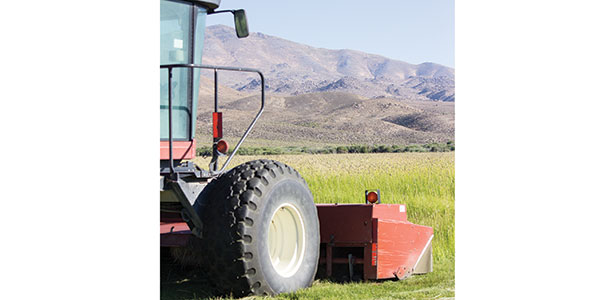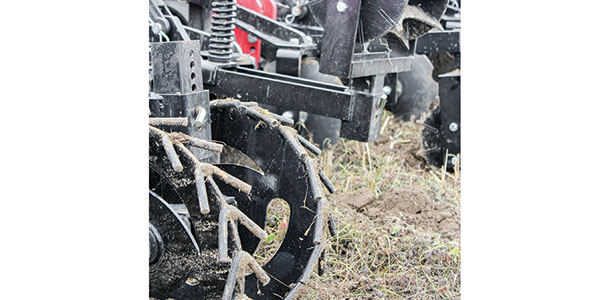There are several reasons to be proactive with warranty repairs in the winter. First, many service departments may be experiencing a seasonal slowdown and looking for work. With plenty of time to diagnose and repair the issue, the equipment should be back long before the use season.

Second, almost all major manufacturers are starting a new budget year, so the amount of money available to fund warranty repairs is flush. It’s unlikely any manufacturer would admit it, but the reality is that warranty money gets more difficult for the customer and dealer to recover late in budget season.
Any warranty work done in the next 30 days will likely be filed and paid from the 2015 budget, which probably hasn’t been touched.
Finally, there’s no need for urgency on repairs made during this time of year. A lot of owners may not realize it, but the freight to ship repair parts is almost never covered under warranty.
But most manufacturers offer freight-free stock-order programs a dealer can use when there’s no rush to get the machine back in the field. It benefits the dealer to order under these stock-order programs, and it can eliminate some out-of-pocket costs.
Earl Miracle, warranty administrator for Livingston Equipment, a major supplier of big square balers and self-propelled windrowers with four stores in Oklahoma, has been both on the dealer and manufacturer side of warranty issues and knows how the system works. He says the best advice he can give equipment owners is to read the fine print.

“They need to understand the warranty terms and conditions – fully. What’s warrantable and what’s a ‘wear’ item. That warranty does not cover service calls or freight. It requires that any items that fail be replaced with original equipment parts. Most importantly, they need to know when their machine goes out of warranty.”
Most manufacturers budget about 2 percent of a machine’s cost to cover warranty. Of course, some machines never touch the warranty budget, and others use more than their share.
Dealers might be inclined to “fudge” on warranty to take care of their better customers, but if their recovered payments exceed 2 percent of their machine sales, they risk a warranty audit from a supplier – a time-consuming and potentially expensive process that no dealer wants.
Dealers hate warranty issues as much as customers do. It’s a challenge for them to break even on any warranty claim because manufacturers set the amount of repair time a dealer will be compensated for on any failure.
“These ‘flat rate’ allowances,” Miracle says, “are ridiculous because they’re based on the time it took a technician to perform a repair on a test machine, on the assembly line with air tools, in ideal conditions – not in a hayfield in 110-degree heat, where failures can typically occur.”
Most owners don’t feel they should have to pay for in-field service calls on equipment under warranty, but generally, they’re not covered. Miracle relates it to a customer of a new pickup truck, “If it has a failure, the dealer won’t come out and work on it; it has to be taken to the dealership.
Some customers want to install the part themselves to save that expense, but almost all warranties require that repairs be made by a factory-authorized technician, so it’s difficult to cheat the system. Some want to be paid for the labor if they install the part, and no warranty will cover that.”
A common claim is that an out-of-warranty machine was starting to fail before the coverage ended. Most manufacturers have a system in place to cover “out-of-warranty” issues if there’s documentation that the failure began before the end of the warranty period and was clearly the result of a defect.
This is called “warranty policy” and is generally controlled by the service representative of the equipment manufacturer. Therefore, it is critical to take a warrantable machine to the dealer’s service department for repairs to develop a service history.

Warranty policy may not pay the whole bill, but getting a percentage of it covered beats nothing.
Miracle concedes that one of the reasons equipment buyers don’t understand warranty better is that it’s generally not something the average salesman wants to spend a lot of time discussing – for two reasons.
First, the sales process can go on for an extended period of time, and by the end of it most customers just want to write the check and go on their way. Second, no salesman wants to raise red flags toward the end of negotiations by talking about warranty details that might derail the sale.
If they bring up the fact that the piece of hay equipment, which could exceed a cost of six figures, has only an industry-standard one-year warranty, it could skew the deal.
Many times a salesman may not know the exact provisions of the warranty, so it might benefit a buyer to visit with the dealership person who files warranties and ask a lot of questions before making the purchase.
Extended warranties are often available, and occasionally it’s worth the peace of mind to invest in them, but then it’s even more crucial to know what they cover.
An understanding of the whole process makes everything flow better. Dealers want to back up their products and help out their customers, but they have to deal with warranty policies that are getting “tighter.” The sad fact is: No manufacturer really wants to pay for warranty, and it pays to follow the rules to ensure a fair share of failures are covered.
If relaxing by the fireplace, it might be a good time to dig through the sales documents that were signed when purchasing new equipment and read all the fine print on the warranty statements. Make that call to the dealer if anything is broken and get it fixed before spring. Now’s the time. FG
Mike Wiles is a freelance writer from Ozark, Missouri.
PHOTOS
PHOTO 1: A swather stands ready to cut meadow hay at Boies Ranch in northeastern Nevada.
PHOTO 2 and 3: Tillage equipment and a corn chopper leave the field after equipment demonstrations at the 2014 Canada Outdoor Farm Show in Woodstock, Ontario. While warranties will sometimes cover needed repairs, experts agree it won’t cover in-field service. Equipment must generally be taken to the dealership. Photos by Lynn Jaynes.









